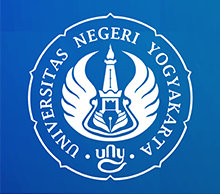Keywords
teacher, professionalism, continuing professional development
Document Type
Article
Abstract
This research aimed to identify the activities needed by teachers in holding the Continuing Professional Development Program. This research employed survey type of non-experimental quantitative research method. This type of research was used when the author wants to find out the population's opinion by conducting a study on the sample of population. The population of research consisted of all teachers of Vocational High School in Business and Management field in Surakarta City Residency. The sampling technique used was purposive sampling. Techniques of collecting data were observation, interview, documentation, and questionnaire. Quantitative data obtained was the one processed using Microsoft Excel with the scale specified by the author, while qualitative data was analyzed using triangulation technique. The result of research showed that Program Continuing Professional Development had been conducted despite different proportion for self-development, scientific publication, and innovative work. Thus, the appropriate strategy was required to solve some problems encountered by teachers
First Page
90
Last Page
95
Page Range
90-95
Issue
1
Volume
6
Digital Object Identifier (DOI)
10.21831/elinvo.v6i1.39800
Source
https://journal.uny.ac.id/index.php/elinvo/article/view/39800
Recommended Citation
T. Murwaningsih et al., "Teacher's Need in the Continuing Professional Development Program for Teachers of Vocational High School throughout Surakarta Residency,", vol. 6, no. 1, pp. 90 - 95, Dec 2021.
The definitive version is available at https://doi.org/10.21831/elinvo.v6i1.39800
References
Anwar, R. 2011. Pengaruh Musyawarah Guru Mata Pelajaran (MGMP) Terhadap Peningkatan Profesionalisme Dan Kinerja Mengajar Guru Sma Negeri Kota Tasikmalaya. Jurnal Administrasi Pendidikan, Vol 13, No 1
Avalos, B. 2011. Teacher professional development in Teaching and Teacher Education over ten years. Teaching and Teacher Education 27, 10 – 20
Bailey, M. 2011. Policy, professionalism, professionality and the development of HR practitioners in the UK. Journal of European Industrial Training, Vol. 35 No. 5, pp. 487-501
Belsito, C. 2016. The importance of ‘teacher quality’ and ‘quality teaching’ on academic performance. Journal of Student Engagement: Education matters, 6 (1), 28–38
Bidabadi, N. S., Isfahani, A. N., Rouhollahi, A., & Khalili, R. 2016. Effective Teaching Methods in Higher Education: Requirements and Barriers, Journal Of Advance in Medical Education and Professionalism, 4(4): 170–178
Fraser, C., Kennedy, A., Reid, L & Mckinney, S. 2007. Teachers’ continuing professional development: contested concepts, understandings and models, Journal of In-Service Education, 33:2, 153-169, DOI: 10.1080/13674580701292913
Goe, L. 2007. The link between teacher quality and student outcomes: A reseasynthesis. Washington, DC: National Comprehensive Center for Teacher Quality.
Kunter, M., Klusmann, U., Baumert., J, Richter, D., Voss., Thamar & Hachfeld, A. 2013. Professional Competence of Teachers: Effects on Instructional Quality and Student Development. Journal of Educational Psychology. 105. 805–820. 10.1037/a0032583.
Lapenienea, D & Dumciene, A. 2016. Teachers’ Creativity: Different Approaches and Similar Results. Procedia - Social and Behavioral Sciences, 116, 279 – 284
Mammadov & Çimen, 2019. Optimizing Teacher Quality Based on Student Performance: A Data Envelopment Analysis on PISA and TALIS. International Journal of Instruction, Vol.12, No.4, 767 – 788
Mammadova, Sevinj & Najafov, Rahil. 2019. Teacher quality vs. Teaching quality. Azərbaycan Məktəbi. 686. 25-32. 10.32906/AJES/686/2019.01.36.
Melani, D. 2015. Persepsi Guru terhadap Pembinaan Kompetensi Profesional Guru Oleh Kepala Sekolah di SMK Se – Kecamatan, Lubuk Befalung Padang. Jurnal Administrasi Pendidikan, Vol 3, No. 1, 381
Muksin. 2016. Pengembangan Model PKB (Pengembangan Keprofesian Berkelanjutan) Guru SMK di Provinsi DKI Jakarta. Autoteach, Vol 8, No 2, 110 – 123
Ni’mah, Z. A. 2017. Urgensi Penelitian Tindakan Kelas Bagi Peningkatan Profesionalitas Guru Antara Cita Dan Fakta. Realita, Volume 15, No. 2, 1 – 22
O’Brien, J. 2011. Continuing professional development for Scottish teachers: tensions in policy and practice. Professional Development of Education, 37, pp. 777–92.
Sugiyono, 2011. Metode Penelitian Kuantitatif, Kualitatif dan R & D. Bandung: Alfabeta.
Susanto, A. 2016. Pelaksanaan Pengembangan Keprofesian Berkelanjutan (PKB) Pada Guru SMK Teknik Otomotif di Wilayah Purworejo. Seminar Nasional Pendidikan (SNP) 2016, ISSN: 25034855
Tosriadi, Asib. A, dan Marmanto, S. 2018. In-Service Efl Teachers’ Experiences Of Conducting Reflective Practice As Continuing Professional Development. International Journal of language Education, Vol. 2 No.2, pp. 52-64
Utami, L.P., Prestridge, S., Saukah, A., & Hamied, F.A. 2019. Continuing Professional Development and teachers’perceptions and practices – A tenable relationship. INDONESIAN JOURNAL OF APPLIED LINGUISTICS, Vol. 9 No. 1, May 2019, pp. 108-118
Wiganda, S. 2014. Pelatihan Penelitian Tindakan Kelas Bagi Guru-Guru Se-Jakarta Timur. Jurnal Sarwahita, Volume 11 No. 1, 1 – 7
Wuryandini, E. 2014. Analisis Permasalahan Dan Kebutuhan Pengembangan Keprofesian Berkelanjutan Guru SMK Bidang Keahlian Bisnis Dan Manajemen Pascasertifikasi Di Kota Semarang. Jurnal Manajemen Pendidikan, Vol. 9, No. 2, 108-119
Zakiya & Nurhafizah. 2019. Pengembangan Keprofesian Berkelanjutan dalam Meningkatkan Profesionalisme Guru Pendidikan Anak Usia Dini. Jurnal Obsesi, Vol. 3 Issue 2, pp. 356 – 365



